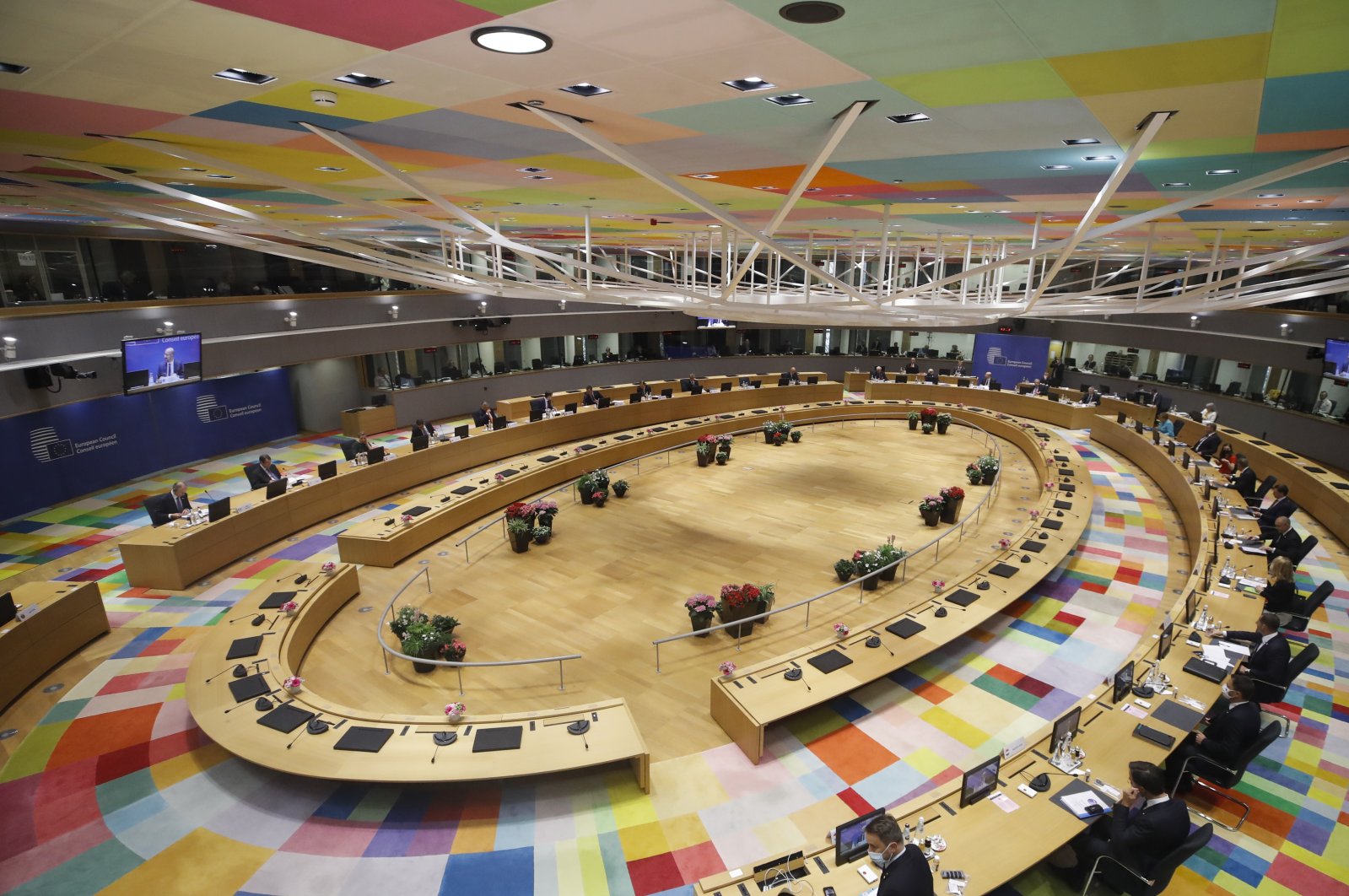EU leaders held another high-level meeting at the end of June. The meeting came after a busy diplomatic schedule for the month. With the G-7, NATO and US-EU summits in June 2021, transatlantic relations have gained new momentum under Joe Biden’s US presidency
The destructive effects of the legacy of former US President Donald Trump have not yet been reversed, but Washington has shown a new enthusiasm to work with its allies on the European continent.
Feelings were mixed in Europe as to the strengthening of cooperation with Washington, in particular in matters of security and foreign policy.
Biden’s efforts so far are not enough to restore trust and solidarity between the US and the EU after the negative legacy of the Trump presidency and COVID-19.
Some controversial topics such as how to engage with China as well as economic cooperation and coordination for post-coronavirus recovery have been postponed in order to maintain the positive tone in transatlantic relations.
A chapter with Moscow
Engaging with Russia was one of the critical debates among European leaders at the last leaders’ summit. How to engage with Russia and the limits of the EU’s autonomy in foreign and defense policy were points of contention between EU member states.
While the Baltic countries, Poland, the Czech Republic and Romania, defend a tougher approach to Moscow, Germany and France support a more constructive and conditional approach that leaves room for dialogue. This issue will continue to fragment EU Member States in the years to come.
After the NATO and EU-US summit, Biden traveled to Geneva to speak more confidently to his Russian counterpart Vladimir Putin. However, for Moscow, it is clear that the issue will continue to be the subject of disagreement between Brussels and Washington.
It appears that the goals of containing Moscow using a multi-faceted approach will continue to be unpopular in Europe.
If Moscow adopts smart, balanced and constructive diplomatic approaches with key EU members, the division within the EU could deepen further.
However, another round of aggressive diplomatic and military measures on the part of Russia will unite and strengthen the position of European actors against Moscow.
One of the key achievements of the last leaders’ summit was the fight against the coronavirus pandemic and the economic stimulus package.
EU leaders have made remarkable progress in agreeing on a post-coronavirus stimulus package, which is also aligned with green transformation.
Ties with Turkey
For Turkey, the latest leaders’ summit did not promise any constructive action. Indeed, the summit was a big disappointment for Ankara, which was preparing to revitalize relations with Brussels.
The talk on the positive agenda with Turkey has not produced concrete results. It is now clear to many in Turkey that the so-called “positive agenda” was in fact not sincere and was only mentioned to contain Ankara’s self-reliant efforts.
The final declaration contained nine elements relating to Turkey, but none of these articles mentioned Turkey as a candidate country. There was no concrete measure to underpin a positive plan with Turkey, even the dialogue with Turkey was tied to certain conditions. Turkey does not need any conditions to speak to its European counterparts.
Aid to Syrian migrants was mentioned in the final declaration, but migration cooperation is not a particular step for Turkey. There was no specific reference to the EU-Turkey statement of March 18, 2016.
Despite nine months of a “positive agenda”, no concrete steps have been taken to normalize relations with Turkey. The European side had promised things such as:
- Visa liberalization
- Modernization of the customs union
- Revitalize the membership process
- Better coordination and collaboration in defense and foreign policy
No change since 2016?
The main points of the EU-Turkey declaration of 18 March 2016 seem to loom far ahead. But Turkey is continuing its migration-related commitments and efforts to reduce tensions in the Eastern Mediterranean.
The discussions on the positive agenda have excited supporters of the EU agenda in civil societies as well as official actors. This short period of optimism quickly turned into disappointment due to the EU’s constant procrastination.
Given the Euroscepticism established in Turkey, the only disappointed players were the Europhiles. It is obvious and proven in the past that when Turkey-EU relations do not advance, they tend to fall back.
Some EU member countries may rejoice in the deterioration of EU-Turkey relations, but the continuation of the negative impasse will also weaken the EU’s long-term strategic position.
Eurosceptic and critical voices in Turkey will gain even more ground following unfair decisions by EU leaders regarding Turkey.
The official position in Turkey is that the EU’s “positive agenda” on Turkey is “insincere”.
This will make the collaborative approach in Turkey-EU relations in Turkey more difficult than six months ago, when there were hopes.
The beneficiaries of this insincere approach are the Turkophobic circles in Europe and the widening of the Eurosceptic circle in Turkey.
EU leaders should stop hiding behind Greek and Greek Cypriot claims as an excuse to delay improving relations with Turkey.
The credibility of the “positive agenda” is at stake. Ankara and the Turkish general public may lose interest and enthusiasm in improving dialogue and collaboration with the EU if this insincere official position continues.

